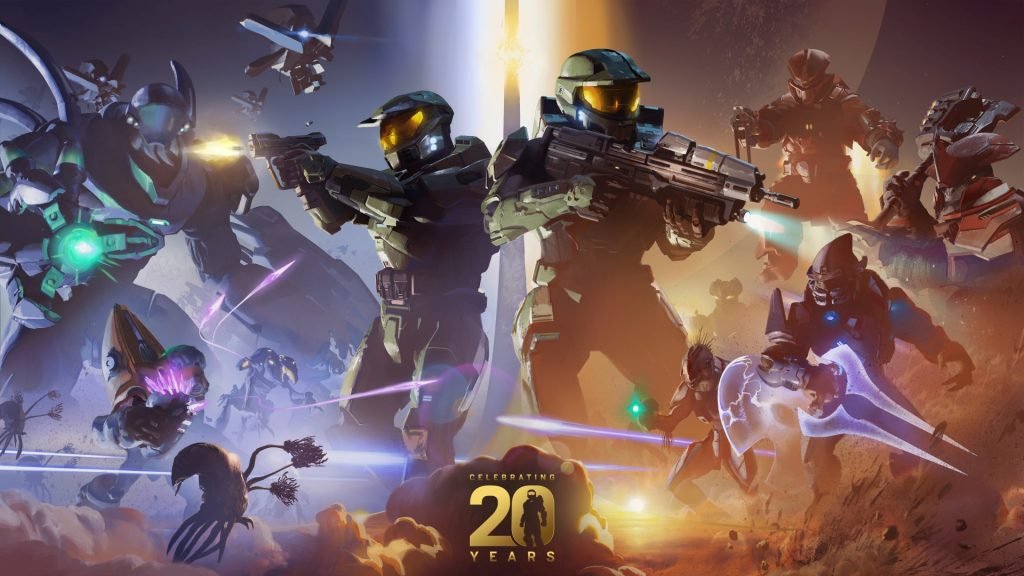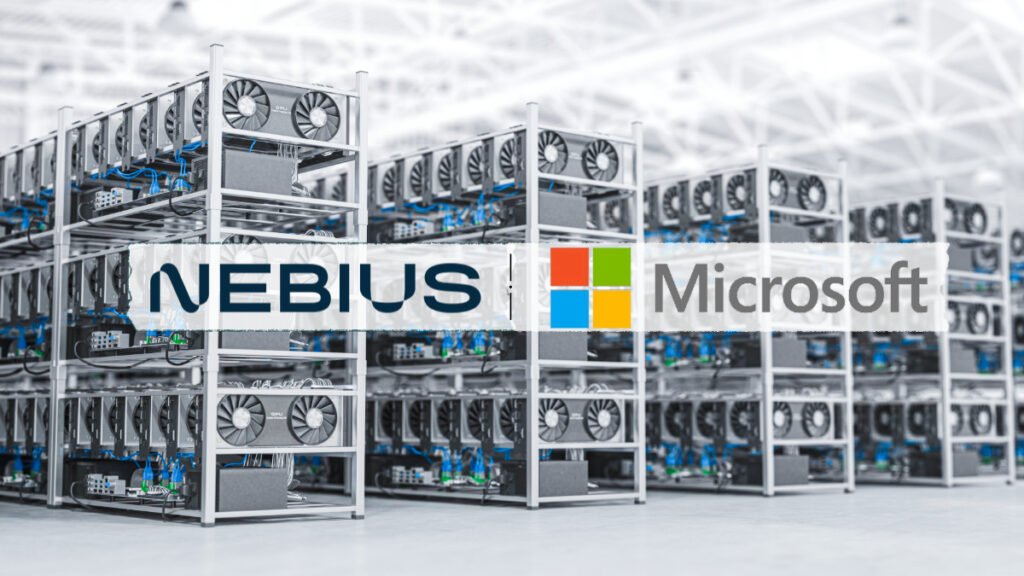Microsoft Celebrates 20 Years of Xbox and Halo

2021 marks 20 years of Xbox and Halo, as the original Xbox and Halo: Combat Evolved launched in North America on November 15, 2001.
Microsoft is celebrating the 20th anniversary of Xbox and Halo starting today and through November 15, 2021. The company wants fans to use #Xbox20 on social media to share their favorite Xbox moments, stories, friendships, prized possessions, achievements, and more.
The first wave of 20th anniversary Xbox merchandise is available on the Xbox Gear Shop, as well as free anniversary-themed wallpapers. You can register for Xbox FanFest to participate in 20th anniversary FanFest activities. Xbox Series X|S owners can use a new dynamic theme based on the original Xbox main menu.
Read the Xbox Wire post below:
Do you remember where you were when you played your first Xbox game?
It may be hard to believe, but this year will mark the 20th anniversary of Xbox. I’m proud to have been a member of Team Xbox for 17 of those 20 years! The original Xbox console was released in North America on November 15, 2001, followed by many more launches all around the world including Japan, Australia, Europe, Latin America, China, and more!
Twenty years ago, playing on Xbox meant hooking up your console with three (or more!) cables to a standard definition CRT TV. You had to pre-order the hottest new games and stand in line at your favorite retail shop to pick them up. Games were played in 640×480 resolution, and you only had 8GB of storage and 64MB of memory to enjoy them with. And you either played alone or with a friend sitting next to you on the couch.
Two Decades of Gaming
The Xbox experience today, as shaped by you, is wildly different. You can now jump into your favorite games on your Xbox Series X|S console (imagine showing your past self a 4K HDR game!), on PC, or on mobile*. You and your friends can play with and against the more than 100 million players who log into Xbox every month from around the world. And there’s no more convincing every person in the group to go out and buy a big game. If you all have Xbox Game Pass Ultimate, you can pick the destination from a variety of games in the catalog and just start playing. We love this gaming future.
Thanks to game creators and players like you, we have a greater variety of games and diverse characters – with more worlds to explore, stories to tell, heroes and villains to meet, and achievements to unlock – in the 7 thousand games that have been released across the Xbox platform. Do you remember unlocking your first Xbox achievement? To-date, you and the Xbox community together have racked up nearly 1 trillion total Gamerscore. Most importantly, you’ve worked together to change the face of gaming by welcoming players from all walks of life, everywhere in the world.
The Game That Started It All
This year not only commemorates 20 years of Xbox, but it also marks the 20th anniversary of the Halo franchise. That magical moment when the Master Chief first stepped on to a mysterious ringworld has long been a hallmark of the Xbox experience, and over the last 20 years, Halo has become deeply embedded into the Xbox DNA. We’re thrilled to celebrate this milestone, as well as the launch of Halo Infinite, with our players this Fall.
Celebrating Together
As we approach the 20-Year mark, it has never been clearer that the heart of Xbox is you. And we are excited to celebrate this milestone together.
The celebration starts today and continues through November 15, 2021.
#Xbox20: This celebration is all about you, and we want to hear what Xbox means to you. Use #Xbox20 on social media to share your favorite Xbox moments, stories, friendships, prized possessions, achievements… anything! We’ll be asking loads of questions on Xbox social channels and spotlighting your answers through November 15, so keep an eye out.
Check out the Xbox Gear Shop for the first wave of Xbox 20th Anniversary official gear.
Show off your Xbox and Halo love with free anniversary-themed wallpapers.
Register today for Xbox FanFest to participate in 20th Anniversary FanFest activities including exclusive sweepstakes, FanFest gear, and digital experiences.
Personalize your Xbox experience: check out the new 20-Year gamerpic and “The Original” profile theme in your “Customize Profile” menu. For Xbox Series X|S owners, “The Original” dynamic background is available in the Personalization menu.
Looking for something new to play? Check out this collection featuring some of the greatest games that have marked Xbox history. You can also find the game collection on your Xbox console by searching for “Xbox Anniversary” in the Store.
Join us today at Twitch.tv/Xbox at 11am PT / 2pm ET to kick off the celebration with our livestreaming hosts as they reminisce about two decades of gaming while playing the game that started it all – Halo: Combat Evolved via the Halo: Master Chief Collection.
We’ll keep the fun going through November with more announcements, activities, and ways to celebrate. Visit xbox.com/20Years for up-to-date details on anniversary activities throughout the year.
We’ll have more fun to share as we get closer to the November 15th anniversary date. Keep an eye out here on Xbox Wire or at xbox.com/20years for the latest updates.
Looking Ahead
Whether you have been an Xbox fan since day one or joined Xbox for the first time this week, we are humbled and excited to be a part of the Xbox community with you. As we reminisce together about the memories we’ve shared over 20 years, we also can’t help but be excited about what’s next for Xbox. Imagine what we will do together over the next 20 years!
*Where available, requires Xbox Game Pass Ultimate
A life-long and avid gamer, William D’Angelo was first introduced to VGChartz in 2007. After years of supporting the site, he was brought on in 2010 as a junior analyst, working his way up to lead analyst in 2012. He has expanded his involvement in the gaming community by producing content on his own YouTube channel and Twitch channel dedicated to gaming Let’s Plays and tutorials. You can contact the author at wdangelo@vgchartz.com or on Twitter @TrunksWD.Full Article – https://www.vgchartz.com/article/448764/microsoft-celebrates-20-years-of-xbox-and-halo/
Read More
Be the first to write a comment.



